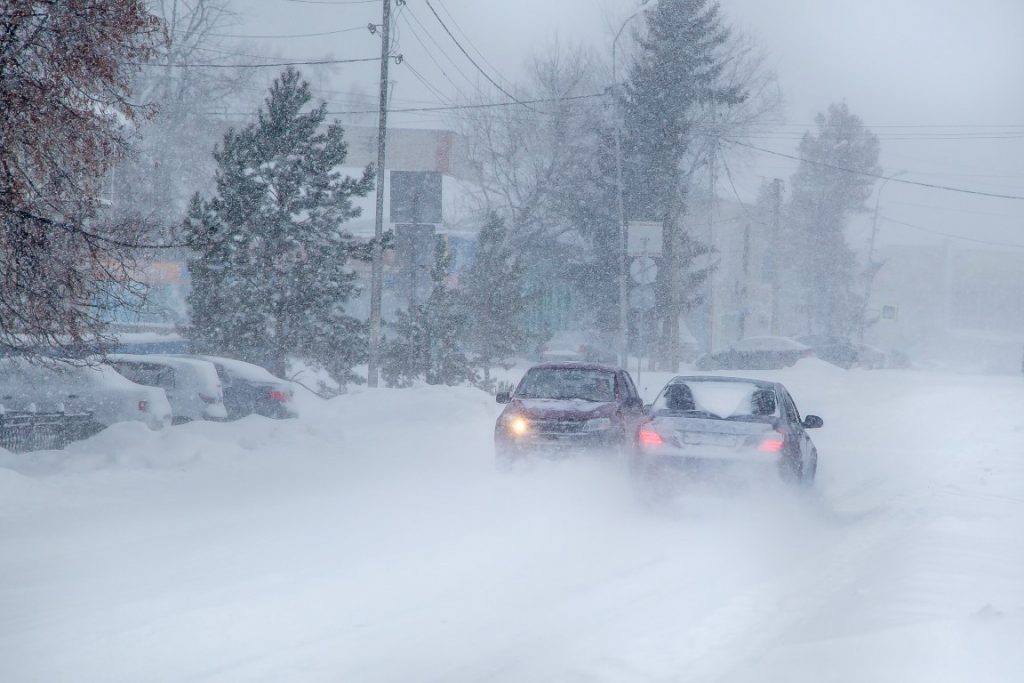As temperatures drop and winter approaches, road conditions become increasingly
unpredictable and challenging, highlighting the indispensable role of winter tires. These months,
characterized by shorter days and longer nights, often bring a mix of snow, ice, and slush,
creating a hazardous environment for drivers. Winter tires, specifically designed for these
conditions, offer traction and safety, ensuring a safer driving experience. Vehicles are always
exposed to sudden faults, hence the need for an extended warranty.
The Science Behind Winter Tires
Winter tires are crafted using a specialized rubber compound that retains its softness even in
chilly conditions, ensuring enhanced grip compared to standard tires. Their distinct tread design
is characterized by deeper channels and jagged, uneven edges, aiding in firmly grasping snow
and ice to boost traction. Additionally, the tread is equipped with many sipes with tiny cuts that
create extra edges, further augmenting the tire’s ability to grip the surface effectively. These
design elements are integral in maximizing the tires' contact with and adherence to winter road
conditions, thereby improving overall traction.
Need For A Specialized Solution for Cold Weather
Winter tires are vital for vehicles in cold climates, offering more than seasonal convenience.
Made from a unique rubber compound that stays flexible in extreme cold, they maintain a grip
on icy and snowy roads. The specialized tread design, featuring deeper grooves and sharper
edges, effectively displaces snow and breaks through ice, ensuring stability and grip. These
tires are engineered to counteract the hardening effect cold weather has on regular tires,
making them an essential element for safe winter driving.
Safety
Safety is paramount in winter driving; winter tires are key to enhancing it. They significantly
reduce braking distances on icy and snowy surfaces, offering superior grip to regular tires. This
results in better control during emergency maneuvers and a reduced risk of skidding. Especially
crucial in areas with unpredictable winter weather, winter tires provide the necessary stability to
navigate treacherous roads safely. Their advanced design and materials ensure reliable
handling in adverse conditions, making them a proactive safety measure for winter.
Boosting Vehicle Capabilities
In colder climates, winter tires significantly elevate a vehicle’s capabilities. Beyond just ensuring
safety, they are engineered to augment handling and stability. Equipped with these tires, vehicles exhibit improved steering responsiveness, retain grip while accelerating, and glide
more smoothly over rugged winter terrains. The expertly designed tread patterns and rubber
formulations facilitate a more efficient transfer of engine power to the road surface, thereby
enhancing acceleration and agility on snowy and icy paths. This results in a driving experience
that is more responsive and controlled, underscoring the importance of winter tires for
navigating winter roads effectively.
Economic Considerations: Long-Term Savings
Investing in winter tires may seem like an added expense, but it is an investment that pays off in
the long run. Using winter tires extends the lifespan of your regular tires, as they are not
subjected to harsh winter conditions. This rotational use can double the lifespan of both sets of
tires. Additionally, reducing the risk of accidents in winter conditions can save you from costly
repairs and insurance claims. On top of that, insurance premiums offered by some companies
drop for customers using winter tires.
Legal Mandates and Insurance Incentives
In several regions, winter tires are a legal requirement during the winter months. This law is a
testament to the recognized importance of winter tires for safe driving. On the insurance front,
many companies offer discounts to drivers who use winter tires, acknowledging their role in
minimizing accidents and improving road safety.
Difference Between Winter Tires vs. All-Season Tires
While all-season tires are marketed as a year-round solution, they do not offer the same level of
safety and performance in winter conditions as winter tires. All-season tires tend to harden in
low temperatures, losing their grip, whereas winter tires are designed to remain flexible and
maintain traction in cold weather. This difference is crucial in ensuring safety and performance
during the winter months.
Widespread Misconceptions
A common misunderstanding is that winter tires are only necessary in regions with heavy
snowfall. However, winter tires are beneficial in all cold weather conditions, including dry and
cold roads. When it drops below 7°C (45°F), the performance of standard tires begins to
decline, making winter tires a safer option even in areas with milder winters.
Preparing for Winter: A Necessary Ritual
Transitioning to winter tires should be an annual ritual for drivers in cold climates. It's a proactive
measure that ensures you are prepared for all types of winter weather. The ideal time to switch
is before the first snowfall or when the temperature consistently drops below seven °C (45°F),
as waiting until winter sets in can often be too late.
Conclusion
Winter tires from November to March are a crucial investment for anyone driving in cold
climates. They offer unmatched safety benefits, enhance vehicle performance, and provide
economic advantages in the long run. Winter tires are vital to your vehicle’s winter preparation,
ensuring you can navigate the winter months safely and confidently. Besides winter tires, you
must purchase an extended vehicle warranty plan. Regardless of the make, model, or age, we
can get it shielded by our extensive and affordable plans. Call +1-866-660-6444 or email
info@a-protectwarranty.com.



